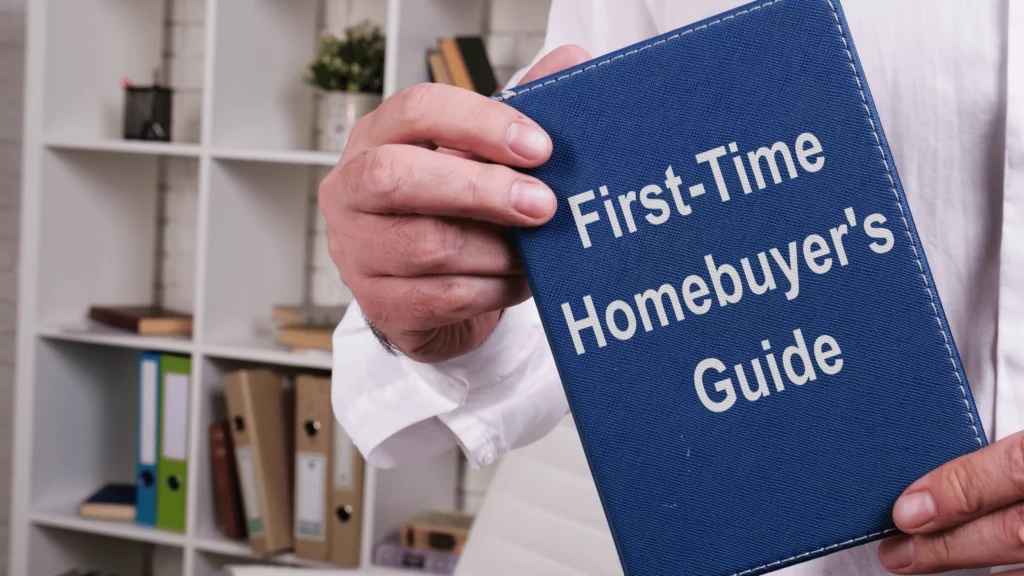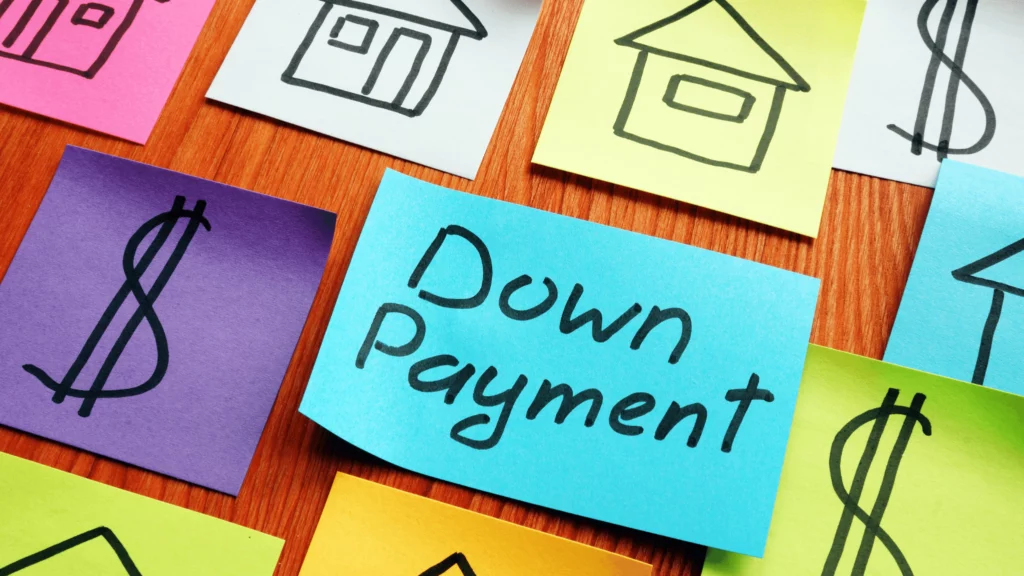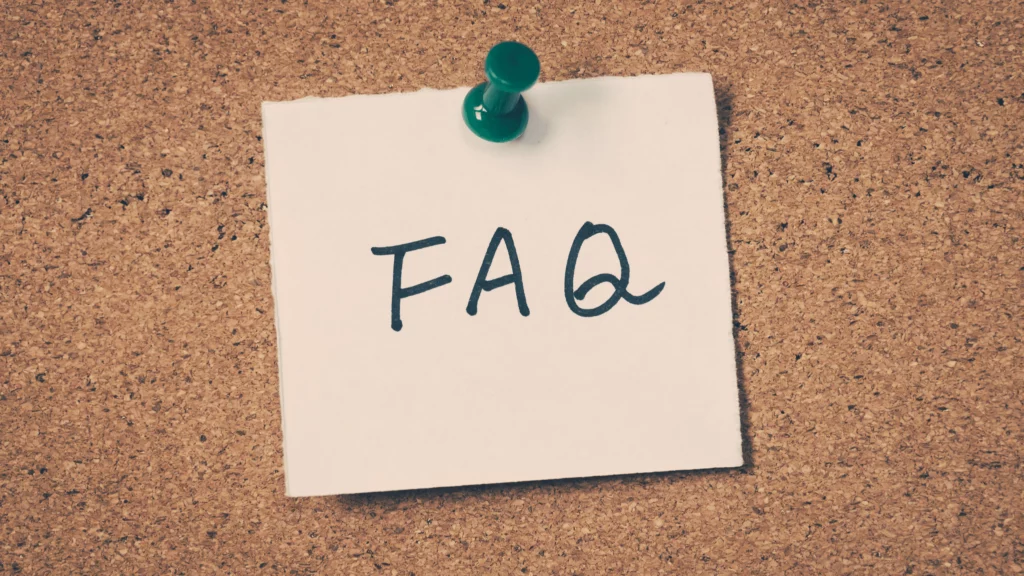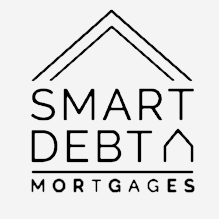
A Guide to Buying Your First Home
As a First-Time Homebuyer, stepping into the world of homeownership is thrilling, yet can also be overwhelming. This guide simplifies the process, offering clarity on essential facets every first-time homebuyer should grasp. Let’s ensure your journey is not only successful but also filled with confidence and understanding.
1. Determining What You Can Afford
Your first step towards homeownership starts with understanding your financial standing. This isn’t just about knowing how much you earn, but also about understanding how much you can comfortably spend without compromising your future financial health. First-time homebuyers can sometimes get confused about this approach, but not to worry I will walk you through the core elements of the approval journey to help prepare you for the process.
Key Points:
Analyze Your Monthly Income, Expenses, and Savings
Income Sources: This includes your monthly salary, any side incomes, dividends from investments, etc. If you have a variable income, take an average of the past six months to get a ballpark figure.
Fixed Expenses: List down all your monthly fixed expenses. This includes rent, utilities, subscriptions, insurance, car payments, and any other debts. If you have never done this, now is a good time.
Variable Expenses: These are expenses that might change from month to month, like groceries, dining out, entertainment, etc. It’s crucial to track these to understand your spending habits better.
Savings and Investments: Determine how much you’re saving monthly. Are you contributing to retirement funds? Do you have an emergency fund? It’s essential to keep these contributions consistent.
Account for Future Expenses and Potential Interest Rate Fluctuations
Future Life Changes: Are you planning to start a family? Do you foresee a job change or going back to school? Factor in potential changes that might impact your income or expenses. First-Time Homebuyers tend to be in the midst of these milestones or planning for them soon.
Interest Rate Changes: If you’re considering a variable rate mortgage, remember that your rates (and therefore your monthly payment) can increase. Ensure you have some financial room to accommodate these potential hikes.
Online Affordability Calculators: A Helpful Starting Point
Function: These calculators take into account your income, expenses, down payment, and current interest rates to give you an estimate of how much home you can afford. Here is a link to an affordability calculator on this site. I leverage ratehub’s calculator for consistent quality calculations.
Accuracy: While these tools provide a ballpark figure, they might not account for all individual nuances. It’s always good to consult with a financial advisor or mortgage specialist for a more personalized assessment.
Understanding what you can afford is the cornerstone of a stress-free home-buying experience, especially for a First-Time Homebuyer. It ensures that you don’t overstretch your finances and provides a clear picture of where you stand. Armed with this knowledge, you can confidently step into the housing market, knowing you’re making a decision that aligns with your financial well-being.

2. Coming Up with a Down Payment
Embarking on the journey of homeownership as a First-Time Homebuyer begins with preparing a solid down payment. This initial investment not only impacts your mortgage amount but is also a testament to your fiscal discipline. Grasping its significance, possible sources, and mandatory stipulations is important.
Key Points:
The Influence Of Down Payment Size
Mortgage Loan Dynamics: Remember this principle – the heftier your down payment, the lighter your mortgage loan. This typically translates to reduced monthly outflows, minimized interest over the loan tenure, and potentially more favorable mortgage rates.
Building Equity from the Start: Starting off with a significant down payment means immediate equity in your new home. As property values potentially rise, this could be a strategic move.
Lender’s Risk Diminished: Demonstrating your commitment with a large down payment can reduce the perceived risk for lenders, potentially positioning you for better financing terms and rates.
Sourcing Your Down Payment
Savings: The age-old and most straightforward source. Consider having a dedicated ‘home fund’ savings account. Setting up automated transfers every month can make the process more systematic. “Less is more” when it comes to the various places your money is parked. Unless you have a well-thought-out strategy for your funds, try to reduce the various sources of your down payment for verification if you can. Most lenders will ask for a 90-day history and proof of your down payment during the approval process.
RRSPs (for Canadians): Under the Home Buyer’s Plan, Canadians who are considered First-Time Homebuyers, can make a tax-free withdrawal of up to $35,000 as of 2022 from their RRSPs for their first home purchase. It’s important to note that this amount is expected to be replenished within a 15-year window to avert any tax repercussions.
FHSA (First Home Savings Account): A newer initiative, the FHSA allows Canadians to save for their first home in a tax-sheltered account, much like the RRSP or TFSA, but specifically designated for first-time homebuyers.
TFSA (Tax-Free Savings Account): Funds from a TFSA can also be used for a down payment. The advantage? Any amount withdrawn is tax-free, and the contribution room is regained the following year.
Gifts from Family: Financial backing from family can be a boon. Ensure clarity, normally through a written agreement or form provided as a template from the lender, which outlines the nature of this financial support between you and the provider of the gift. This agreement has to make clear that the gift is not repayable and, therefore, not a loan or promissory note. As of 2023, More than 50% of First-Time Homebuyers leverage this option from family.
Other Investments: Liquidating stocks, bonds, or other real estate assets can be considered. But do weigh in on the tax ramifications and probable future returns before any such move.
Navigating Minimum Down Payment Stipulations
Based on Property Value: Typically, the required down payment is a percentage of the property’s listed price. For instance, properties priced under $500,000 might demand a minimum of 5% down in Canada, with the requirement scaling up for more expensive homes. See the Sliding Scale calculation for a better understanding.
Bypassing Additional Costs: A more substantial down payment, especially one above 20% of the purchase price, can often help you sidestep additional charges like mandatory mortgage insurance.
Region-Specific Rules: Different provinces and cities often have uniquely different guidelines and regulations. You can leverage my expertise as a Mortgage Agent to ensure you’re aligned with both local regulations and stipulations set by lenders.
Your down payment is a reflection of your financial sagacity and readiness for homeownership. By understanding its depth, sourcing avenues, and requisites, you’re better poised for an uncomplicated home-buying experience as a First-Time Homebuyer. When in doubt, seeking expert counsel can provide invaluable insights, especially when navigating the intricacies of a deep financial analysis for buying paired with a complex local real estate market.
3. Qualifying for a Mortgage
Securing a mortgage as a First-Time Homebuyer in Canada revolves around demonstrating one’s financial health and capability to handle the commitment. Several core criteria act as benchmarks for lenders in this decision-making process. Let’s decipher these integral elements.
Key Points:
Credit Score and History
Canadian Credit Score Basics: In Canada, credit scores range between 300, which is the lowest, and 900, representing the pinnacle of creditworthiness.
Score Interpretation:
300-574: Considered Poor
575-659: Fair
660-724: Good
725-759: Very Good
760-900: Excellent
Your Credit’s Tale: Beyond just the numerical score, lenders peruse your entire credit history. This deep dive seeks to uncover payment habits, total debt, the longevity of credit accounts, recent credit inquiries, and the blend of credit types, such as credit cards, loans, and other financial commitments.
Uplifting the Score: The road to an improved credit score is paved with regular and timely bill payments, maintaining a balanced credit utilization, and demonstrating responsible borrowing habits over time.
Current Income and Employment Stability
Showcasing Earnings: Lenders are keen on tangible proof of consistent income, ensuring you’re equipped to manage the impending mortgage dues. This evidence often includes recent pay slips, tax returns, and employment verification documents.
Continuity in Employment: Having a stable employment trajectory, especially spending two or more years with a particular employer or in the same industry, is usually seen in a favorable light.
Self-Employment Nuances: Entrepreneurs or those with fluctuating income patterns might find the verification phase more intricate, necessitating additional documents such as business ledgers or financial statements.
GDS (Gross Debt Servicing Ratio) and TDS (Total Debt Servicing Ratio)
GDS – Deciphering Housing Costs: GDS calculates the percentage of your gross monthly income that would be channeled toward housing-related costs. This includes components like mortgage dues, property taxes, utilities, and half of any applicable condo fees.
TDS – A Broader Financial Picture: TDS is more encompassing, factoring in all your monthly debt commitments. So, alongside housing expenses, elements like car loans, credit card bills, and other outstanding loans come under its purview.
Optimal Ratios in Canada: For a comfortable mortgage approval process in Canada, maintaining a GDS ratio under 39% and a TDS ratio beneath 44% is generally advised.
Navigating the mortgage qualification criteria in Canada is about aligning with established financial benchmarks. By comprehending and optimizing these facets of your financial persona, you’re positioned not just to secure a mortgage, but to command favorable terms. The intricacies can at times seem complicated, but a consultation with an expert mortgage professional can help translate these metrics into actionable insights, particularly if you are a First-Time Homebuyer.

4. Obtaining a Pre-Approval
As a First-Time Homebuyer, a mortgage pre-approval is an essential step in the home-buying process, acting as a financial litmus test and a cornerstone for serious house hunting in Ottawa, or other places in Ontario. It gives both you and potential sellers a concrete indication of your borrowing ability and seriousness. Many realtors will also ask you if you have gotten a pre-approval as a way of assessing your understanding and readiness to proceed with your home search.
Key Points:
Clarity on Financial Reach
Know Your Budget: A pre-approval elucidates the mortgage amount you can afford, guiding you to properties within your financial grasp.
Calculations at Play: The lender will use your income, debts, employment, and credit history to determine this figure, ensuring it aligns with your financial situation.
A Stronger Bargaining Chip
Competitive Advantage: In competitive markets, a pre-approval can set you apart, showcasing your readiness and seriousness as a buyer.
Seller Confidence: It signals to sellers that you’re a safe bet, potentially smoothing the path to a successful negotiation.
Understanding the Pre-Approval Scope
Interest Rate Insights: A pre-approval typically can include a rate hold, locking in the current interest rate for a specified period (usually 60-120 days), protecting you from rate hikes while you search while also allowing you to take advantage of rate decreases.
Flexibility in Choice: Although you have an idea of what you can borrow, you’re not obligated to max out the amount nor stick with the lender once you’re ready to buy.
The Fine Print: Be aware that a pre-approval is based on the information provided at the time and is subject to change if your financial circumstances evolve or if you find a property that doesn’t meet the lender’s requirements. Pre-approvals are a light-touch look at your affordability and are not a full detailed analysis in the way full-approvals are.
Garnering a pre-approval is a savvy financial maneuver for First-Time Homebuyers, and return buyers alike. It amplifies your credibility in the real estate market with both realtors and property sellers. As your dedicated mortgage agent, I can streamline this process, working with you to secure a pre-approval that not only reflects your financial prowess but also arms you with knowledge and confidence as you embark on your property pursuit.
5. Considering Different Types of Mortgages (Fixed vs. Variable)
Selecting the right type of mortgage as a First-Time Homebuyer is akin to choosing a path on your financial journey toward homeownership. It should mirror your comfort with risk, your long-term financial plans, and your ability to handle potential market fluctuations. Your choice can also be influenced by your level of knowledge about the true risk-to-benefit ratios of your mortgage options. Be sure to thoroughly explore your options and your knowledge before making a decision.
Key Points:
Fixed-Rate Mortgages
Stability Over Time: Fixed-rate mortgages offer peace of mind with consistent payment amounts throughout the term, unaffected by the rise and fall of interest rates in the financial market throughout the duration of the term.
Budgeting Ease: They enable precise budgeting, as you’ll know exactly how much of your home cost goes towards the principal and interest every month.
Predictability: Ideal for those who value predictability and stability, especially over a longer period, or for those who anticipate that interest rates may increase in the near future.
Variable Rate Mortgages
Rate Fluctuation: With a variable-rate mortgage, your interest rate will track the market rate, which means your monthly payments can vary.
Potential for Savings: Historically, variable rates have proven to be less costly over time, but they do come with the risk of increased payments in real time if the rates go up.
Flexibility Advantage: They often come with lower prepayment penalties than fixed-rate mortgages, offering more flexibility if you plan to pay off your mortgage early.
Making the Choice
Assessing Your Financial Comfort: Your choice may hinge on your personal tolerance for risk. If uncertain economic times are looming, or if you prefer consistent payments for easier household budgeting, a fixed rate may be your haven.
Expert Guidance: As a mortgage agent, I’ll help you assess the economic climate, interest rate trends, and your financial circumstances to determine the best mortgage type for you.
Market Trends and Forecasts: Keeping abreast of market conditions and rate forecasts can help in making an informed decision that could save you money in the long run.
The decision between fixed and variable rates is more than just a financial one; it’s about how you envision your life in your new home and how much financial fluctuation you’re prepared to handle. As your dedicated mortgage agent in Ottawa, I’m here to provide you with all the information you need to make the choice that fits snugly with your lifestyle and financial goals.
6. Different Term Lengths
As a First-time Homebuyer and beyond, the mortgage term you select is a foundational decision that shapes the rhythm of your repayments and term-related goals. It’s the duration for which the mortgage contract conditions, including the interest rate, will hold firm. This period does not represent how long it will take to pay off your mortgage in full—that’s the amortization period—but rather how long your current rate and terms are guaranteed.
If you run into situations where you might need to break your term like moving, selling, refinancing, or separating among other reasons, many lenders will offer flexible options to facilitate many of these situations if you continue to keep your mortgage with them. A key detail to keep in mind when choosing your term is the potential penalties you can face upon breaking the term prematurely.
Key Points:
Spectrum of Term Lengths
Short-Term: Ranging from 6 months to 5 years, short-term mortgages are often chosen by homeowners who desire flexibility, such as those planning to move again soon or anticipating a significant change in rates.
Long-Term: Extending from 5 to 10 years, long-term mortgages suit those seeking stability in their monthly payments, especially when rates are low and you want to lock in for a longer period.
Interest Rates Consideration
Rate Variability: Generally, shorter terms may have lower interest rates compared to longer terms, reflecting the lender’s lower risk for a shorter time frame. However, this variability can change significantly in more volatile economic environments such as what was seen during and following the COVID pandemic.
Predictability vs. Flexibility: A longer term might come with a slightly higher rate but offers the comfort of knowing what your payments will be over a significant period, while a shorter term leaves room for adjusting your mortgage strategy more frequently.
Flexibility in Changing Terms
Renewal Opportunities: Shorter terms provide more frequent renewal opportunities, which can be advantageous if you’re following a strategy that anticipates dropping rates or changes in your financial circumstances.
Penalties and Restrictions: It’s important to note that breaking a mortgage before the end of its term can incur penalties. The nature of these penalties can depend heavily on the term length and the conditions set by the lender. These details are sorted out before you sign and agree to the mortgage product.
As we explore the various term lengths available for your mortgage in Ottawa, it’s critical to consider not just the immediate financial implications but also your long-term financial health and lifestyle plans. This kind of forecasting can be difficult for a First-Time Homebuyer, that is why I am here to help you navigate these options, balance the pros and cons, and secure a mortgage term that aligns with both your present situation and your vision for the future.
7. Amortization
Some First-Time Homebuyers get confused about the difference between the mortgage term and the amortization, and that’s okay. Amortization refers to the stretch of road that spans the lifetime of your mortgage. It’s the total time it will take you to pay off your mortgage in full, given regular payments and the interest rate. This timeframe is a key component in determining how much interest you’ll pay over the life of your loan and how large or manageable your regular payments will be.
Key Points:
Length of Amortization Periods
Standard Span: In Canada, the typical amortization period is 25 years for mortgages with less than a 20% down payment that requires mortgage loan insurance. For those with a higher down payment, it’s possible to extend this period up to 30 years, providing additional flexibility.
Shorter vs. Longer Periods: A shorter amortization period means you’ll pay off your mortgage quicker and pay less interest over time. A longer amortization reduces your monthly payment amount but increases the total interest paid throughout the life of the mortgage.
Impact on Monthly Payments and Interest
Monthly Payments: Longer amortization periods equate to lower monthly payments, making your mortgage more manageable month-to-month, especially for first-time homebuyers or those with tighter budgets.
Interest Paid: However, these smaller payments come with a trade-off: you’ll end up paying more interest over the life of the mortgage compared to a mortgage with a shorter amortization period.
Adjusting Over Time
Flexibility: Some lenders may offer the flexibility to change your amortization period, which can be beneficial if your financial situation changes. You may be able to make lump-sum payments or increase your monthly payment amount, effectively shortening your amortization period.
Long-Term Planning: Deciding on the right amortization period is a balancing act that involves assessing your current financial health, your future goals, and your ability to manage the ongoing commitment of a mortgage.
Amortization is more than a schedule; it’s a commitment to a financial strategy that must align with your life plan. It is crucial to consider how this choice will affect both your day-to-day finances and your long-term financial goals. As your mortgage agent in Ottawa, I’m committed to helping you understand these nuances and tailor an amortization strategy that harmonizes with your aspirations and realities. Contact me to chart out the optimal course for your mortgage journey.
8. Open vs. Closed Terms
As a First-Time Homebuyer, the choice between an open or closed mortgage term can significantly affect your ability to adjust mortgage payments in response to changes in your financial situation. This choice dictates the flexibility you’ll have in paying off your mortgage, either faster or as scheduled. The most consistently chosen term for most homebuyers is the closed term, which still offers prepayment flexibility and lower rates than the open term option.
Key Points:
Open Term Mortgages
Flexibility: Open-term mortgages offer the utmost flexibility, allowing you to make extra payments, increase your payment amounts, or pay off the entire mortgage without incurring penalties.
Interest Rates: Typically, open mortgages come with higher interest rates due to the flexibility they offer.
Short-Term Strategy: They are ideal for those who expect a lump sum of money or plan to sell their property shortly, as they can pay off the mortgage without penalty.
Closed Term Mortgages
Lower Interest Rates: Closed-term mortgages are the most common, and they often have lower interest rates compared to open terms. This can make them more cost-effective over the term, provided your financial situation remains stable.
Prepayment Limits: These mortgages have prepayment limitations, which means there’s a cap on how much you can pay off early, either in total or as an increase to your regular payments.
Penalties: If you pay off your mortgage early or exceed the allowed prepayment amount, you could incur significant penalties. These penalties are there to compensate the lender for the interest they lose when you pay ahead of schedule.
Matching Term Type to Your Needs
Lifestyle and Financial Goals: The decision between open and closed terms should take into account your lifestyle, financial goals, and your comfort with risk versus reward.
Anticipating Change: If you believe your financial situation may change significantly, and you wish to maintain the option to repay your mortgage without restriction, an open term may be worth the higher interest rate.
Budgeting for Stability: If your priority is budgeting with predictable costs, and you are not planning significant early repayments, a closed term might be more suitable and cost-effective.
In the nuanced world of mortgages, the terms ‘open’ and ‘closed’ represent more than financial jargon; they embody your approach to financial planning and risk management. Understanding the distinction and how each can serve your unique situation is pivotal. If you are a First-Time Homebuyer, and you find yourself wondering how to sort through the benefits and drawbacks of these options just reach out and I’ll happily walk you through them.

9. Costs and Fees
When securing a mortgage, First-Time Homebuyers are able to access some perks and rebates that are not available to recurring buyers and previous homeowners. However, it’s not just the price of the property that you need to consider when you are analyzing your budget. There are a range of additional costs and fees that come into play, which are essential to factor into your budgeting to avoid any surprises at closing when you are speaking with your real estate lawyer.
Key Points:
Lender and Administrative Fees
Application Fees: Some lenders charge an application fee to process your mortgage request. (Most often associated with private lenders and some B lenders)
Appraisal Fees: Before a lender offers you a mortgage, they may require an appraisal of the property to ensure its value meets the loan amount. (These fees range from $99 – $500+)
Mortgage Default Insurance: If your down payment is less than 20%, you will need to purchase mortgage loan insurance, which can add to the overall cost. However, these insurers also off programs that support First-Time Homebuyers (The three main insurers in Canada are CMHC, Sagen, and Canada Guaranty)
Interest Adjustment
Interest Adjustment Costs: Depending on your closing date and the timing of your first mortgage payment, you may need to pay an interest adjustment fee for the interest accrued during that period. The specifics of these anticipated costs are sorted out with your Mortgage Agent during your mortgage signing meeting.
10. Other Closing Costs to Consider
The journey toward home ownership is paved with various expenses that extend beyond the initial down payment and mortgage payments. It’s crucial to have a comprehensive understanding of these additional closing costs, which are often the final hurdle before you receive the keys to your new home. The good news for First-Time Homebuyers is that some of these costs have rebates and discounted pricing for the first home. Let’s go through a few of the primary costs.
Key Points:
Legal and Government-Related Expenses
Legal Fees: These are the charges for the services provided by a real estate lawyer who will facilitate the legal transfer of the home into your name. (These are unavoidable and a part of every public real estate purchase in Ontario)
Land Transfer Tax: This tax is payable upon the purchase of a property and is based on the purchase price. In Ontario, first-time homebuyers may be eligible for a rebate. (Check out the Ontario government site for the latest breakdown of rebates – Ontario Land Transfer Tax Rebate)
Property Tax Adjustments: If the seller has prepaid property taxes, you may need to reimburse them for the portion of the tax period that you will own the home.
Due Diligence Costs
Home Inspection Fees: A critical step in the home-buying process is to have the property inspected by a professional to uncover any potential issues. (These costs are in the $200-$500 range normally.)
Title Insurance: This insurance protects against any losses related to the property’s title, such as fraud or errors in public records. (Costs vary and are discussed with your lawyer)
Additional Costs
Moving Expenses: Allocating funds for the actual move, whether you’re hiring professional movers or doing it yourself, is essential.
Initial Maintenance or Repair Costs: When you first move in, there may be immediate repairs or upgrades you wish to undertake, which can vary significantly in cost.
Utility Setup: Some services may charge fees to initiate service or transfer accounts into your name.
Furniture and Appliances: Especially pertinent for first-time buyers moving into larger spaces, the cost of furnishing and equipping a home can add up quickly.
Navigating the waters of closing costs as a First-Time Homebuyer can be complex, but they are a critical component of the home-buying process. As your dedicated mortgage agent in Ottawa, I am committed to providing you with a clear and concise breakdown of all potential expenses, ensuring no detail is overlooked. With my guidance, you’ll be equipped to manage these costs effectively, paving the way for a smooth transition into your new home. Don’t let the intricacies of closing costs deter you—connect with me for a comprehensive consultation, and take your first confident steps towards homeownership.

FAQs for First-Time Homebuyers
Addressing Common Questions
Q1: As a First-Time Homebuyer, How do I determine how much house I can afford?
Start by reviewing your finances, including your monthly income, expenses, and any savings. Utilize online mortgage affordability calculators as a preliminary tool, but for a more accurate figure, consider obtaining pre-approval from a lender. Remember to factor in future potential expenses and the possibility of interest rate changes.
Q2: What are my options for a down payment?
Your down payment can come from various sources such as personal savings. Although, some savings options are geared towards benefitting First-Time Homebuyers. Registered Retirement Savings Plans (RRSPs) withdrawals under the Home Buyers’ Plan, a new First Home Savings Account (FHSA), gifts from family, or other investments. The amount required will depend on the purchase price of the home.
Q3: What do lenders look at when deciding to approve a mortgage?
Lenders typically consider your credit score and history, stable income and employment, and your debt-to-income ratio—specifically, your Gross Debt Service (GDS) and Total Debt Service (TDS) ratios should not exceed 39% and 44% respectively. Some of these variables can be more limited for First-Time Homebuyers depending on when they enter the real estate market, such as employment and credit bureau tenure.
Q4: Why is getting pre-approved important?
A4: A pre-approval gives you a better idea of how much a lender may be willing to lend you and at what interest rate. It strengthens your position in a competitive housing market, although it is not a final guarantee of a loan. These are most beneficial to First-Time Homebuyers as a way of also understanding the process.
Q5: Should I choose a fixed or variable-rate mortgage?
A5: The choice between a fixed and a variable rate mortgage depends on your comfort with risk and your financial situation. A fixed-rate provides stability with consistent payments, while a variable rate can offer savings if market interest rates drop. Both options are available to First-Time Homebuyers.
Q6: How does the length of a mortgage term affect me?
Shorter terms can typically offer lower interest rates in stable market conditions but require renewing more often, which can be a risk if rates increase. Longer terms provide more stability in your payments but might come with higher interest rates. First-time homebuyers often choose a 5-year rate and adjust as their situations change.
Q7: What is a mortgage amortization?
Amortization is the total length of time it will take you to pay off your mortgage in full, usually spanning 25 to 30 years. Longer amortization periods mean lower monthly payments but result in more interest paid over time.
Q8: What’s the difference between open and closed mortgage terms?
An open mortgage term allows you to pay off your mortgage early without penalties, offering flexibility if you come into extra money. A closed mortgage has lower interest rates but limits the amount of extra payments you can make. Typical prepayment options for closed terms range around 10-20% of the original mortgage value annually.
Q9: As a First-Time Homebuyer, what additional costs should I anticipate when closing on a house?
Expect to pay for home appraisals, mortgage default insurance (if your down payment is less than 20%), legal fees, and potentially a home inspection. First-time homebuyers often get a Land Transfer Tax Rebate on their first home.
Q10: Are there any other expenses I should plan for after closing?
After closing, you will need to account for moving costs, initial maintenance or repairs, utility setup charges, and furnishings. It’s also wise to have an emergency fund for unexpected expenses.


